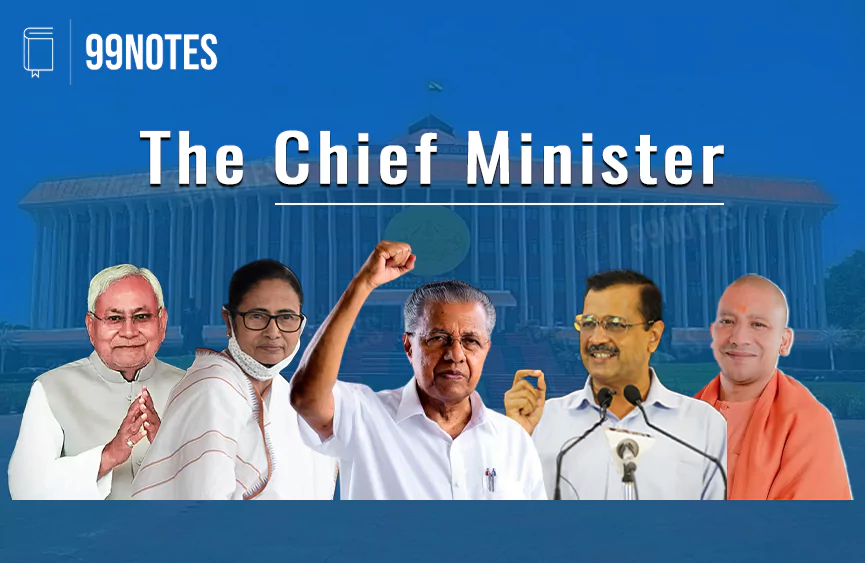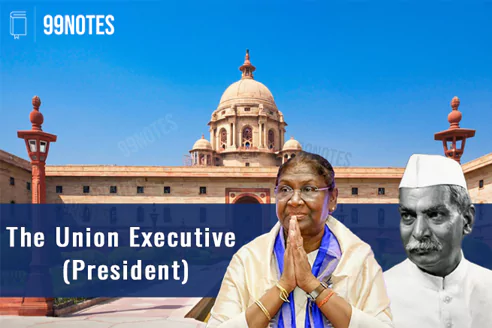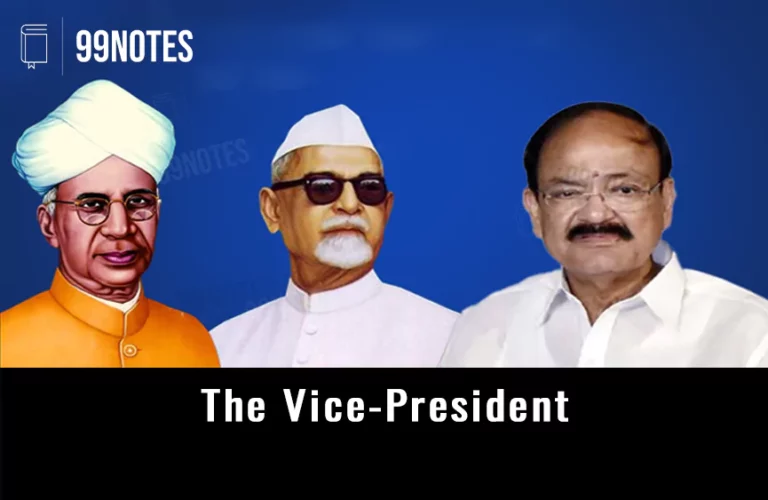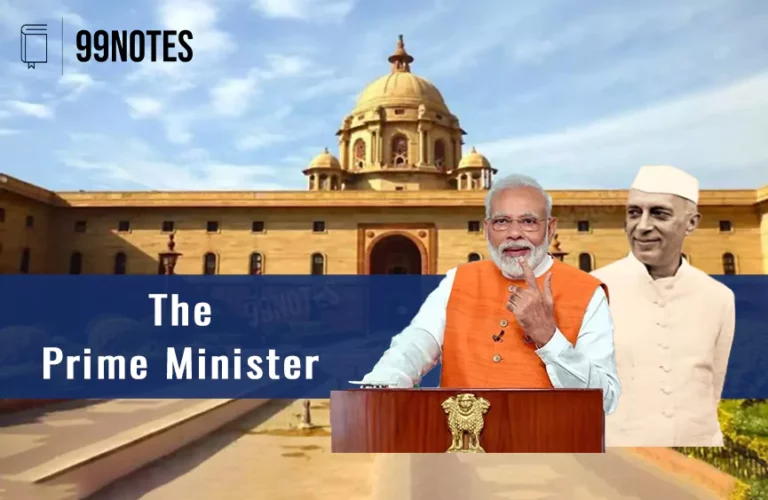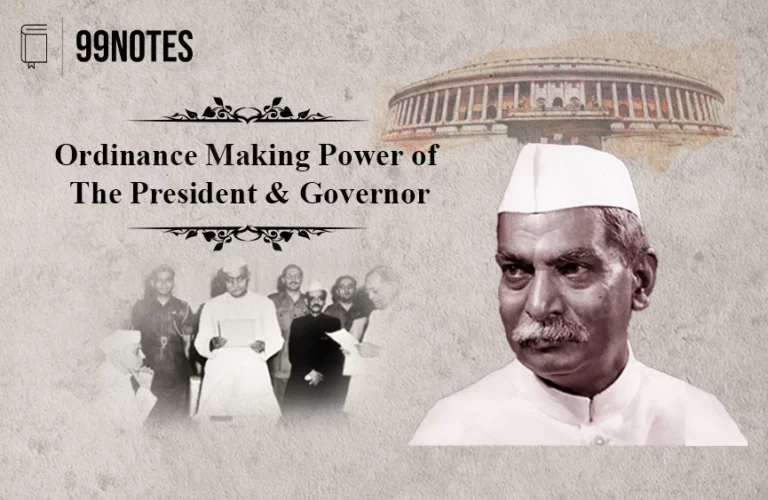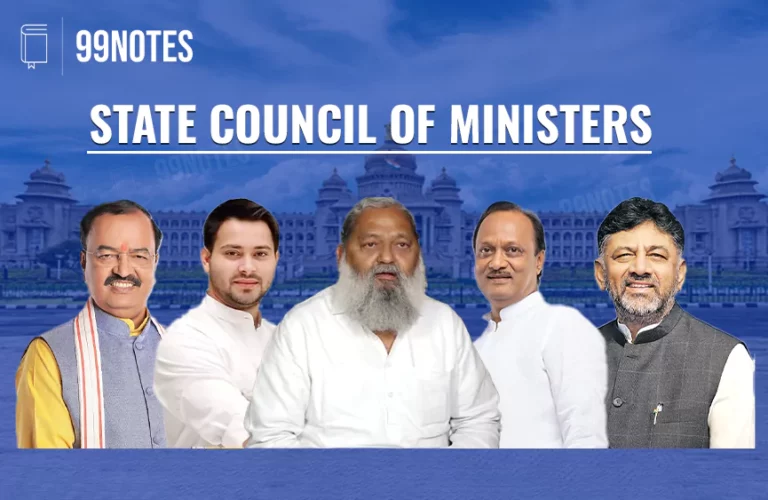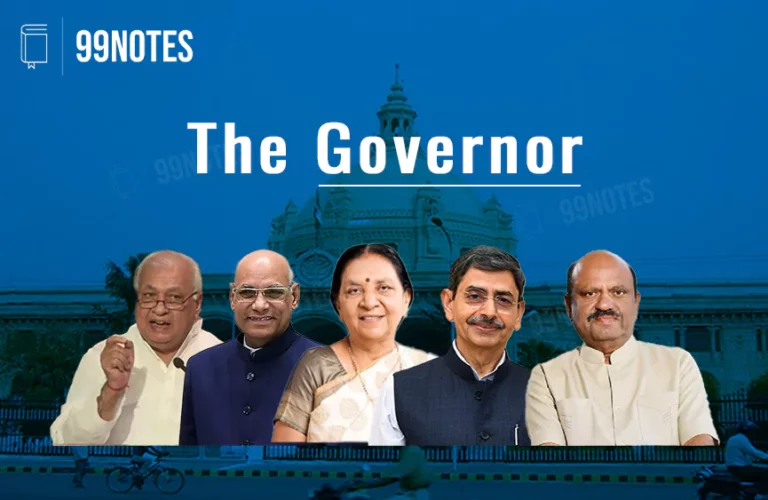The Chief Minister: Appointment, Oath, Power and Functions- Complete Notes for UPSC
Chief Minister
Article 163 of the Indian Constitution states, “There shall be a Council of Ministers with the Chief Minister (CM) at the head to aid and advise the Governor of the state in the exercise of his functions”.
In the parliamentary form of government, the Chief Minister is the real executive authority in states. While the Governor is the head of the state (federal unit), the Chief Minister is the head of the government.
His/her position in the Indian polity is comparable with the Prime Minister at the centre.
Appointment of a Chief Minister
- The Constitution has not defined any criteria for appointing the Chief Minister.
- Article 164 of the Indian Constitution provides that the Governor shall appoint the Chief Minister; however, s/he cannot appoint any person as the Chief Minister.
- As per the parliamentary conventions, the leader of the largest party in the state legislature is appointed as the Chief Minister.
- The person who is not a member of the state legislature (both Houses) can also be appointed as the Chief Minister for 6 months, within which s/he must get elected or nominated (in case of bicameral legislature).
- In cases of hung assembly (when no party or pre-poll coalition has a majority), the Governor exercises situational discretion, which means that the Governor can exercise his/her individual judgment in appointing the Chief Minister.
- The Constitution does not require a person to prove his/her majority in the state assembly before s/he is appointed as the Chief Minister. After the formation of the ministry, the Governor can ask the Chief Minister to prove a majority within a reasonable period.
Oath and Affirmation of Chief Minister
Before taking up the office, the Chief Minster must take an oath or affirmation of office and secrecy before the state governor.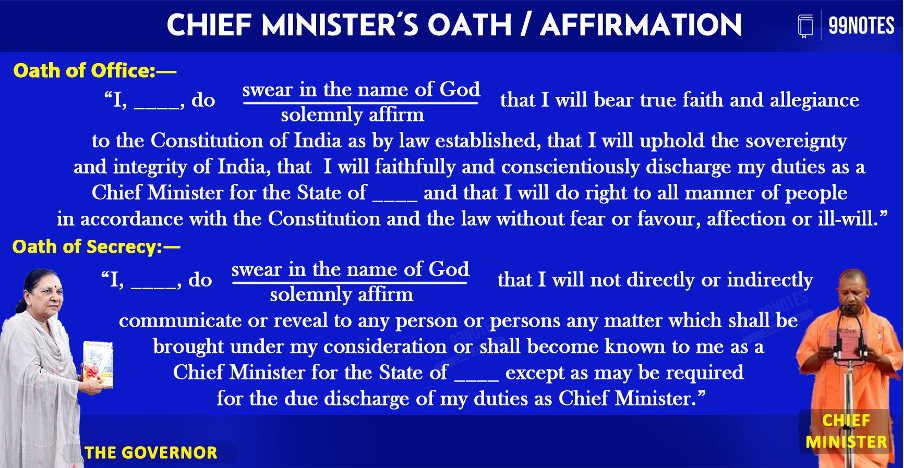
Term of a Chief Minister
- The Constitution does not fix the term of a Chief Minister.
- Article 164 provides that the Ministers (including the Chief Minster) hold office during the pleasure of the Governor.
- However, as long as s/he enjoys a majority in the state legislature, s/he cannot be dismissed.
- In case the Chief Minister (Council of Ministers) loses the confidence of the House, s/he must resign, or the Governor can dismiss him/her.
Remuneration of the Chief Minister
- The state legislature determines the salary and allowances of the Chief Minster.
- In addition to salaries payable to the legislative assembly members (MLAs) and legislative council membersncil (MLCs), the Chief Minister is entitled to sumptuary allowance, medical facilities, travelling allowance and rent-free accommodation.
Powers and Functions of a Chief Ministers
The Chief Minister chairs the Council of Ministers, and his/her powers and functions are analogous to that of the Prime Minister at the centre. The powers and functions of the Chief Ministers can be studied under the following heads:
1. In Relation with the Council Of Ministers
As the head of the Council of Ministers, the Chief Minister enjoys the following powers:
- On the Chief Minister’s recommendation, the Governor appoints ministers.
- S/he assigns and reshuffles the portfolios of the ministers.
- The Chief Minister presides over the Cabinet meetings, sets the meeting agenda and influences the decision-making process.
- S/he coordinates with the various departments and ministries for the smooth functioning of the government.
- S/he defends the actions of the ministry in the assembly, meaning s/he ensures the collective responsibility of the Council of Ministers to the state assembly.
- In case a minister differs from the opinion of the Council of Ministers, the Chief Minister can ask for resignation or can ask the Governor to dismiss him/her.
- On his resignation or death, the Council of Ministers automatically dissolves. However, the resignation or death of any minister does not have such effect.
2. In Relation with the Governor
The power of the Chief Minister in relation to the Governor can be traced to both the Constitution and established conventions.
- The Chief Minister is the primary channel of communication between the Governor and the Council of Ministers; in this regard, the Constitution entrusts the Chief Minter with the following duties:
-
- All decisions of the Council of Ministers regarding the administration of state affairs and legislative proposals shall be communicated to the Governor of the state.
- To provide any information regarding the administration of state affairs and legislative proposals that the Governor may call for.
- Any subject on which a minister has reached a decision but has not been taken into consideration by the Council of Ministers shall be submitted for the consideration of the Council of Ministers if the Governor so requires.
- S/he advises the Governor with regard to the appointment of important officials like the Advocate General, Chairperson and members of the State Election Commission and State Public Service Commission, etc.
- As per the convention, the Chief Minister is consulted during the appointment of the Governor to that state. However, this convention has been violated multiple times.
- The speeches of the Governor, either at ceremonial events or in the state legislature, are approved by the Cabinet.
3. In Relation to the State Legislature
As the leader of the House, the Chief Minister wields the following powers:
- S/he advises the Governor regarding the summoning and proroguing the sessions of the state legislature.
- As the leader of the House, the Chief Minister sets the legislative agenda.
- The legislative proposals (excluding private member bills) are brought after the approval of the Cabinet, which is headed by the CM.
- The CM also inform the House about various government policies and activities by answering questions, intervening in debates and making statements.
- S/he can recommend the Governor for the dissolution of the legislative assembly at any time.
4. In relation to the Personnel
- As the political head of the executive, the CM controls the entire bureaucracy of the state with the help of the state secretariat headed by the chief secretary.
- S/he approves all senior appointments like those of Secretaries, Additional/Joint/Deputy Secretaries, Heads of the Departments, Chairpersons, MDs of Public Sector Undertakings (PSUs), etc.
- Through his/her Cabinet, s/he controls the service conditions and disciplinary matters of the public servants.
5. Other Powers and Functions of Chief Minister
- S/he is the chief spokesperson of the state government.
- S/he is the chairperson of the State Planning Board.
- S/he is a member of the governing council of the NITI Ayog and Inter-state Council.
- S/he is the vice-chairman of the concerned zonal council on a rotation basis for a period of 1 year.
- As the leader of the state, s/he interacts with the various sections of people and takes notice of their grievances, concerns and suggestions.
Relationship with the Governor |
|
Considering the above-mentioned points, it is clear that the CM has a central role in the administration of the state as well as in the political party s/he belongs to. Even though the Governor is the head of the executive, the real executive authority vests with the CM. However, the Governor’s discretionary powers do diminish his/her authority to some degree.
Other Related Links:
| President of India | Vice President |
| Prime Minister | Union Councils of Ministers |
| The Governor of States | State Council of Ministers |

